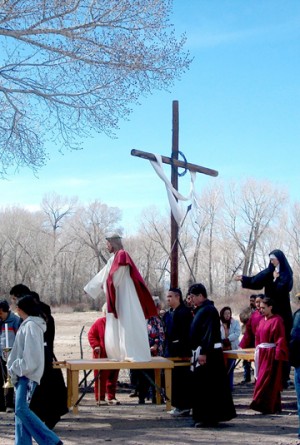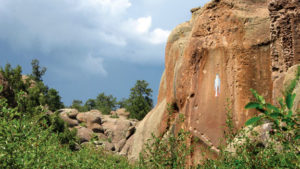by Hal Walter
It’s perhaps an irony that the Feed Barn and The Feed Store both recently closed their doors here in Custer County.
The Feed Barn was a 25-year-old livestock and pet feed business founded by a longtime ranching family. It has changed hands twice since it opened, and I am one of a handful of local residents who can remember buying feed from original owners Randy and Claricy Rusk at their location north of town.
The Feed Store was an upscale restaurant operated by French chef Stephane in a nicely remodeled grain mill. The property owners clearly have sunk a pile of money into not only the building but also the nicely landscaped grounds that include an amphitheater where concerts and plays are staged in the warmer months.
I think it’s safe to say neither business closed because the owners foundered on the profits. Likewise, I doubt many business owners in Westcliffe and Silver Cliff are really raking in the dough these days.
We all know the economy sucks, but I often marvel at how businesses in a small town like this, population 3,500 in a good month, can manage. Sure, there are some that seem to be almost a success by necessity. A small supermarket, for instance, seems like a reasonable enterprise and we have one. And I suppose a liquor store and gas station would seem safe bets as well, but we have two of the former and three of the latter.
And then you start to look at all the other shops, and you have to wonder how they can make it. A handful of restaurants. Art galleries. Secondhand stores and trinket shops. I don’t want to single anyone out, but it seems like a lot of folks are in the business of nonessential goods.
Business in the Westcliffe-Silver Cliff district has its own unique set of problems. One problem is that commerce is highly seasonal. Another is that we aren’t really that far from major population centers.
We have many more folks in town in the summer than in the winter. That’s because we have a lot of summer vacation homes, and since the weather is nice here in the summer we also have many more day visitors.
So much of the summer business is based on people who are not full-time local residents. And signs in some local businesses indicate merchants are closed until summer. It reminds me of the shuttered businesses I’ve seen when visiting East Coast beaches during the winter.
Similarly, I know longtime ranchers who can tell stories of the days when they ran cattle up here in the summer, and drove them back to Pueblo for the winter. This area simply does not support life between October and April. Even attempts at a ski resort wiped out on the ice.
As for the full-timers, many of them make frequent trips to what locally is called “Down Below” — generally that’s Cañon City or Pueblo, perhaps even Colorado Springs. These places are close enough that local merchants literally are competing both on price and selection with the likes of Sams’ Club, big-box hardware stores, large chain grocery stores and the like.
In addition, we full-timers also are more likely to buy locally in the summertime, because it is so hot Down Below.
I do believe in the notion of supporting local business. I really do, and I made many of my holiday purchases locally. But I can tell you that I’m a full-time resident — have been so for 19 years — and I usually find some reason to make a trip to Pueblo at least once a week. If gasoline, chocolate, feed or whatever is less expensive there — and I’m going there anyway — why wouldn’t I buy it there? In fact, I keep an ice chest in my vehicle.
If I need something on short order back home, say I run out of avocados, I can stop by the local supermarket and pick some up. If I run short on gas, I can put in $10 worth to get back to Pueblo where it’s often 20 cents or more per gallon cheaper.
And I don’t think I’m the only one with these habits. I often run into Custer County residents in Pueblo businesses like Big R, Natural Grocers, Lowes and King Soopers. A friend of mine shops at the Pueblo Sam’s Club regularly, and another frequents Costco in Colorado Springs. Should we feel guilty? I don’t think we’re so much being traitorous to our fellow residents who are business owners as we are just doing what makes financial sense for ourselves. Besides, there are some things that are just not typically available in Custer County, like a large selection of organic vegetables or fresh fish.
So what does this mean for local businesses and residents? Some businesses will fall victim to the economy, plain and simple. A few others are just not reality-based. Still others will fall victim to the vagaries of the seasonal Custer County economic climate.
It’s a tough place to do business, but it seems simple to understand there are just more people in Custer County willing to feed the local businesses during the warmer months.
Hal Walter writes and edits from the Wet Mountains. You can keep up with him regularly at his blog: www.hardscrabbletimes.com

